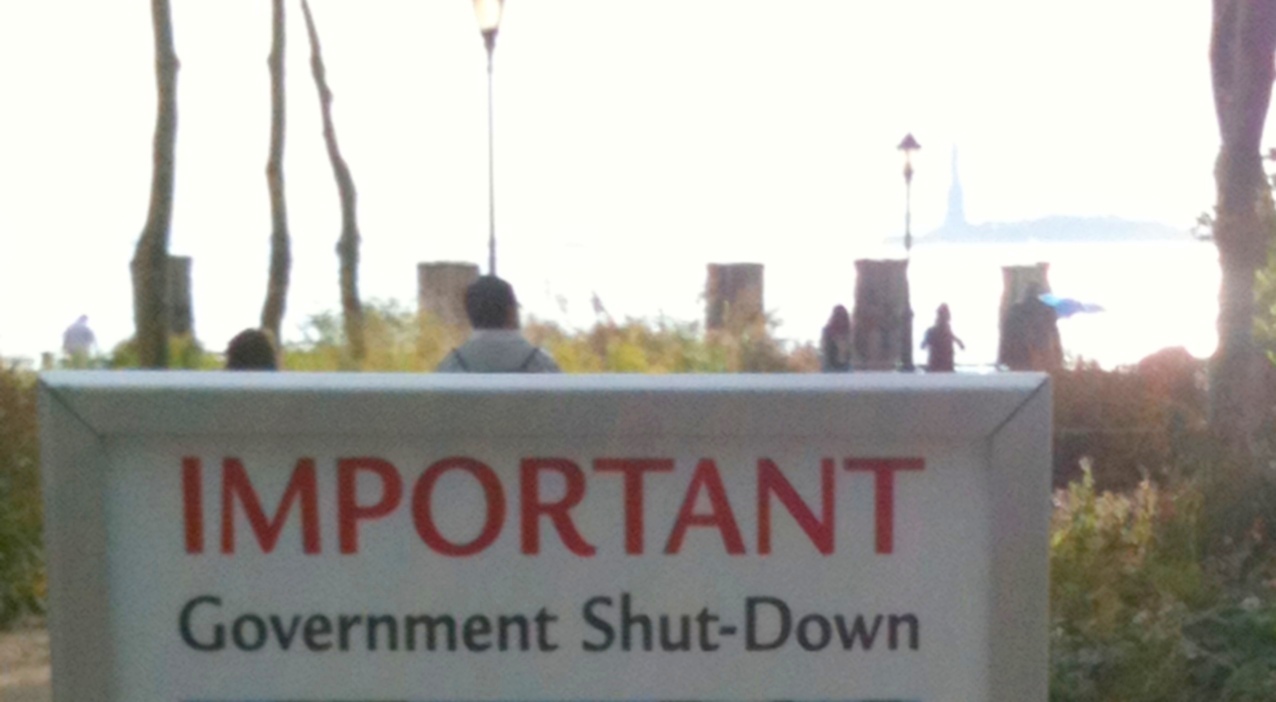 Applied Technology Institute (ATICourses) provides a variety of technical training courses on Space, Satellite, Radar, Defense, Engineering, Systems Engineering, and Sonar. Now is the time to get your training!
Last government shutdown has occurred in 2013.
https://en.wikipedia.org/wiki/United_States_federal_government_shutdown_of_2013
We’re months away from the annual budget deadline, and if Congress and President Donald Trump fail to appropriate funds, government departments won’t be able to spend money. This means contractors won’t get paid.
“If the budget debate gets ugly, which is a clear possibility, we could see the shares weaken in September, and then potentially rebound fairly quickly with the conclusion of (or lack of) any shutdown, as was the case in 2013,” Wells Fargo analyst Ed Caso wrote in a Thursday note.
However, those with fixed-price contracts, higher exposure to the Defense or Homeland Security Departments, or more off-site work are considered to be at a lesser risk.
Applied Technology Institute (ATICourses) provides a variety of technical training courses on Space, Satellite, Radar, Defense, Engineering, Systems Engineering, and Sonar. Now is the time to get your training!
Last government shutdown has occurred in 2013.
https://en.wikipedia.org/wiki/United_States_federal_government_shutdown_of_2013
We’re months away from the annual budget deadline, and if Congress and President Donald Trump fail to appropriate funds, government departments won’t be able to spend money. This means contractors won’t get paid.
“If the budget debate gets ugly, which is a clear possibility, we could see the shares weaken in September, and then potentially rebound fairly quickly with the conclusion of (or lack of) any shutdown, as was the case in 2013,” Wells Fargo analyst Ed Caso wrote in a Thursday note.
However, those with fixed-price contracts, higher exposure to the Defense or Homeland Security Departments, or more off-site work are considered to be at a lesser risk.
Government Shutdown: U.S. Budget Crisis Looms (Again)
Applied Technology Institute (ATICourses) provides a variety of technical training courses on Space, Satellite, Radar, Defense, Engineering, Systems Engineering, and Sonar. Now is the time to get your training! Last government shutdown has occurred in 2013. https://en.wikipedia.org/wiki/United_States_federal_government_shutdown_of_2013 We’re months away from the annual budget deadline, and if Congress and President Donald Trump fail to appropriate […]
 Applied Technology Institute (ATICourses) provides a variety of technical training courses on Space, Satellite, Radar, Defense, Engineering, Systems Engineering, and Sonar. Now is the time to get your training!
Last government shutdown has occurred in 2013.
https://en.wikipedia.org/wiki/United_States_federal_government_shutdown_of_2013
We’re months away from the annual budget deadline, and if Congress and President Donald Trump fail to appropriate funds, government departments won’t be able to spend money. This means contractors won’t get paid.
“If the budget debate gets ugly, which is a clear possibility, we could see the shares weaken in September, and then potentially rebound fairly quickly with the conclusion of (or lack of) any shutdown, as was the case in 2013,” Wells Fargo analyst Ed Caso wrote in a Thursday note.
However, those with fixed-price contracts, higher exposure to the Defense or Homeland Security Departments, or more off-site work are considered to be at a lesser risk.
Applied Technology Institute (ATICourses) provides a variety of technical training courses on Space, Satellite, Radar, Defense, Engineering, Systems Engineering, and Sonar. Now is the time to get your training!
Last government shutdown has occurred in 2013.
https://en.wikipedia.org/wiki/United_States_federal_government_shutdown_of_2013
We’re months away from the annual budget deadline, and if Congress and President Donald Trump fail to appropriate funds, government departments won’t be able to spend money. This means contractors won’t get paid.
“If the budget debate gets ugly, which is a clear possibility, we could see the shares weaken in September, and then potentially rebound fairly quickly with the conclusion of (or lack of) any shutdown, as was the case in 2013,” Wells Fargo analyst Ed Caso wrote in a Thursday note.
However, those with fixed-price contracts, higher exposure to the Defense or Homeland Security Departments, or more off-site work are considered to be at a lesser risk.